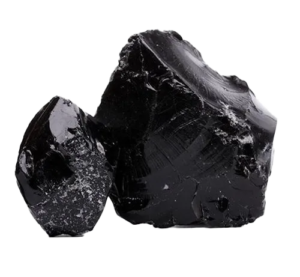SCIENCE | SUPPLEMENTS
Shilajit
Shilajit is a natural substance that originates from the decomposition of plant material in mountainous regions. It is rich in minerals, fulvic acid, and other organic compounds. Health benefits associated with shilajit include improved muscular strength, reduced oxidative stress and inflammation, and enhanced skin health.

PUBLICATIONS
- Effects of 8 Weeks of Shilajit Supplementation on Serum Pro-c1α1, a Biomarker of Type 1 Collagen Synthesis: A Randomized Control Trial.
- J Diet Suppl. 2024;21(1):1-12.
- Design: Study on 35 recreationally trained men divided into low dose (500 mg/d), high dose (1,000 mg/d), and placebo groups to evaluate the effects of Shilajit supplementation on serum pro-c1α1 levels, which is a marker of type 1 collagen synthesis.
- Summary: The study found that Shilajit supplementation over 8 weeks significantly increased serum pro-c1α1 levels in both low and high dose groups compared to the placebo. This suggests that Shilajit may enhance type 1 collagen synthesis, which is crucial for maintaining bone and tissue health, especially in physically active individuals.
- Shilajit Extract Reduces Oxidative Stress, Inflammation, and Bone Loss to Dose-Dependently Preserve Bone Mineral Density in Postmenopausal Women with Osteopenia.
- Phytomedicine. 2022 Oct;105:154334.
- Design: Randomized, placebo-controlled study involving 60 postmenopausal women with osteopenia, who were assigned to placebo, 250 mg, and 500 mg Shilajit groups. The study spanned 48 weeks and measured changes in bone mineral density (BMD), oxidative stress markers, and inflammatory markers.
- Summary: Shilajit supplementation dose-dependently preserved bone mineral density, with the 500 mg group showing the most significant benefits. Additionally, Shilajit reduced oxidative stress and inflammation, factors that contribute to bone degradation. These findings highlight Shilajit’s potential as a therapeutic option for improving bone health and preventing osteoporosis in postmenopausal women.
- Skin Transcriptome of Middle-Aged Women Supplemented With Natural Herbo-Mineral Shilajit Shows Induction of Microvascular and Extracellular Matrix Mechanisms.
- J Am Coll Nutr. 2019 Aug;38(6):526-536.
- Design: Study conducted on healthy middle-aged women, who were supplemented with Shilajit for 14 weeks. The study evaluated changes in skin gene expression related to microvascular health and extracellular matrix integrity, alongside assessments of skin microperfusion.
- Summary: Shilajit supplementation led to significant improvements in skin microperfusion, indicating enhanced blood flow to the skin. Gene expression analysis revealed upregulation of genes associated with endothelial cell migration and angiogenesis (growth of new blood vessels), as well as extracellular matrix organization. These results suggest that Shilajit may contribute to healthier, more resilient skin by promoting vascular health and tissue regeneration.
- The Effects of Shilajit Supplementation on Fatigue-Induced Decreases in Muscular Strength and Serum Hydroxyproline Levels.
- J Int Soc Sports Nutr. 2019 Feb 6;16(1):3.
- Design: Study involving 63 men who were divided into high dose (500 mg/d), low dose (250 mg/d), and placebo groups. The study aimed to investigate the impact of 8 weeks of Shilajit supplementation on muscle strength and serum hydroxyproline levels, particularly under fatigue conditions.
- Summary: Participants in the high-dose Shilajit group experienced significantly less fatigue-induced strength loss compared to the placebo group. Additionally, serum hydroxyproline levels, a marker of collagen degradation, were reduced, suggesting enhanced connective tissue integrity. The findings indicate that Shilajit may be effective in supporting muscle strength retention and promoting connective tissue health, especially under conditions of physical stress.
- Clinical Evaluation of Purified Shilajit on Testosterone Levels in Healthy Volunteers.
- Andrologia. 2016 Jun;48(5):570-5.
- Design: Study conducted on healthy male volunteers aged 45-55, who were administered 250 mg of Shilajit twice daily for 90 days to assess its effects on testosterone levels.
- Summary: Shilajit supplementation resulted in significant increases in total and free testosterone levels, as well as DHEAS (dehydroepiandrosterone sulfate), a precursor to testosterone. These hormonal changes were not observed in the placebo group, indicating that Shilajit may effectively enhance androgenic hormone levels, potentially supporting male reproductive health and vitality.

